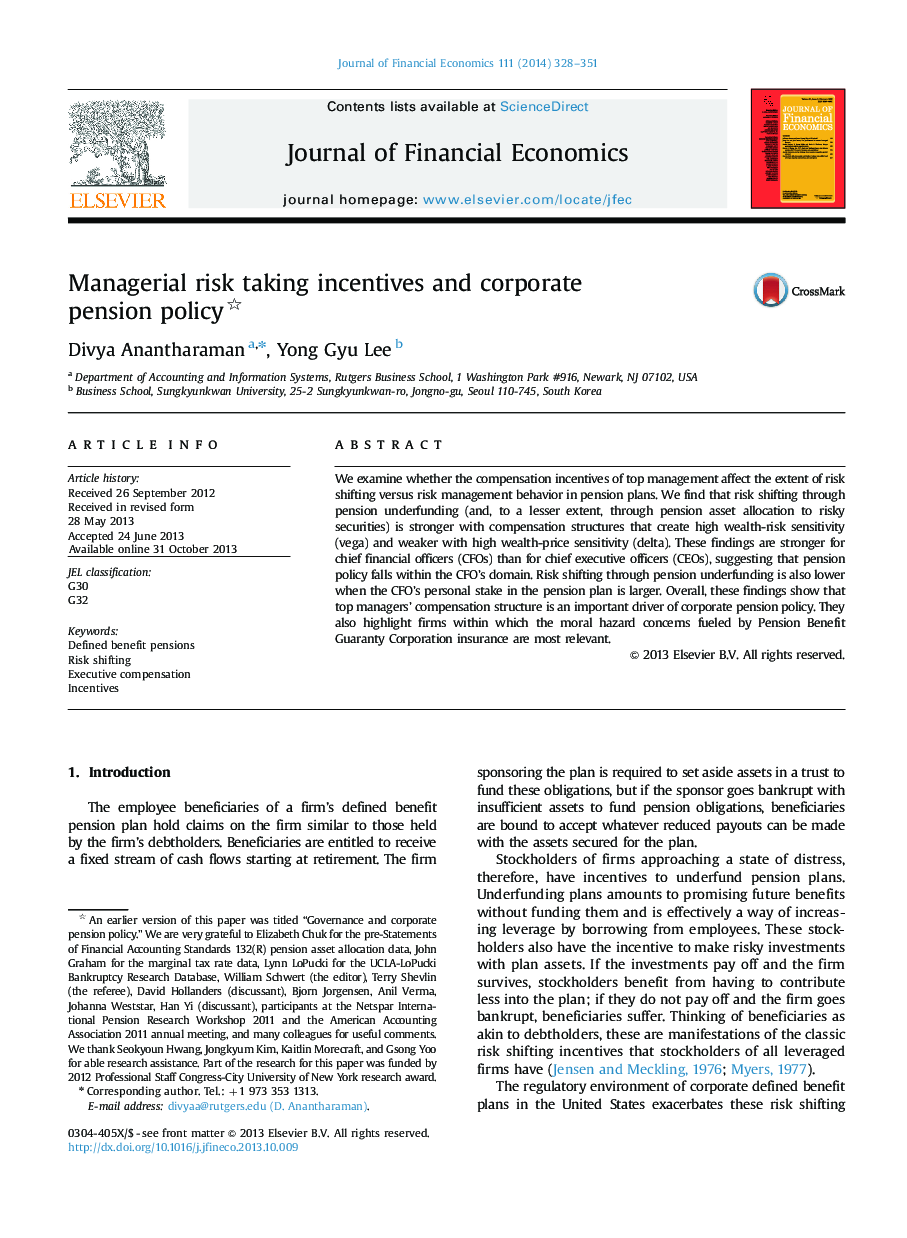| Article ID | Journal | Published Year | Pages | File Type |
|---|---|---|---|---|
| 959474 | Journal of Financial Economics | 2014 | 24 Pages |
We examine whether the compensation incentives of top management affect the extent of risk shifting versus risk management behavior in pension plans. We find that risk shifting through pension underfunding (and, to a lesser extent, through pension asset allocation to risky securities) is stronger with compensation structures that create high wealth-risk sensitivity (vega) and weaker with high wealth-price sensitivity (delta). These findings are stronger for chief financial officers (CFOs) than for chief executive officers (CEOs), suggesting that pension policy falls within the CFO’s domain. Risk shifting through pension underfunding is also lower when the CFO’s personal stake in the pension plan is larger. Overall, these findings show that top managers’ compensation structure is an important driver of corporate pension policy. They also highlight firms within which the moral hazard concerns fueled by Pension Benefit Guaranty Corporation insurance are most relevant.
